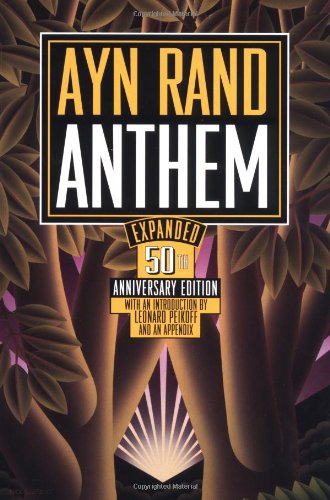All Nonfiction
- Bullying
- Books
- Academic
- Author Interviews
- Celebrity interviews
- College Articles
- College Essays
- Educator of the Year
- Heroes
- Interviews
- Memoir
- Personal Experience
- Sports
- Travel & Culture
All Opinions
- Bullying
- Current Events / Politics
- Discrimination
- Drugs / Alcohol / Smoking
- Entertainment / Celebrities
- Environment
- Love / Relationships
- Movies / Music / TV
- Pop Culture / Trends
- School / College
- Social Issues / Civics
- Spirituality / Religion
- Sports / Hobbies
All Hot Topics
- Bullying
- Community Service
- Environment
- Health
- Letters to the Editor
- Pride & Prejudice
- What Matters
- Back
Summer Guide
- Program Links
- Program Reviews
- Back
College Guide
- College Links
- College Reviews
- College Essays
- College Articles
- Back
Anthem by Ayn Rand
Only the Great WE
When you watch a man die, it’s something you never forget. When you watch a man die for his crimes, it’s engraved upon your memory for all eternity. The Councils knew this when they ordered the Saint burned in front of the City’s population. They enslaved the peoples’ minds through this powerful psychology -- forcing them to witness such scarring events and never know such “evils” as love and a family by raising your own children.
Love is a powerful thing. Love can move mountains, fling a kiss or a thought across miles of open sea, weave lives together forever. It can also destroy a plot, shred a soul, spread a rebellion. Equality 7-2521, the Unconquered, had a love for forbidden knowledge. This love lead him to a love for International 4-8818 and for Liberty 5-3000, the Golden One.
In the beginning, Equality 7-2521 said, “We were born with a curse. It has always driven us to thoughts which are forbidden.” He goes on to say he knows that he is evil. I find this interesting because their definition of evil varies so greatly from our own. By the latter portion of the novella, his views are completely reversed. Equality 7-2521 conceives that he is his own person, his own being. And that his thoughts are not sins. Just look at what his damnation got him; a beautiful girl, a baby-to-come, a house in the country, knowledge, and freedom of mind and body. If all his plans work out, all the Cities will rebel and will acquire their own freedom and dreams, too.
“For the coming of that day I shall fight, I and my sons and my chosen friends. For the freedom of Man. For his rights. For his life. For his honor.”
What a spectacular way to conclude a book. It perfectly accentuates Ayn Rand’s point, which I feel is that you cannot suppress the spirit of man for long. You can poison and restrain it, but never quite capture it. The spirit is like a bar of soap. Hold it too tight and you will lose it one way or another.
I do believe I found a bit of symbolism here, as this sounds suspiciously like a shackle. “...the iron bracelet which all men wear on their left wrists with their names upon it.” Shackles often take away one’s physical freedom; these “iron bracelets” do more than that. By writing their name, age, and height on a metal cuff they can never take off, the Councils attempt at killing their free will. Men can never lie about who they are; it’s essentially tattooed on them.
When Equality 7-2521 went to tell the Council about the lightbulb, I was expecting them to react with, “You have had an amazing idea that will benefit man!” not, “What is not done collectively cannot be good.” This shows how their society is being forced to digress into the dark ages, as opposed to progressing into a technological era such as ours. They place the smart, independent thinkers in the low, degrading jobs, and the mindless, blind followers in the “thinking” jobs. This guarantees the progression of their society will be extraordinarily slow. It also means that it’s virtually impossible to invent something, because that requires thinking for yourself.
The way that the Council rejected his lightbulb hits home with me because, as a teenager, I’ve been rejected in a similar way. As in, I’m not eighteen, I don’t know anything. As in, Equality 7-2521 is a lone street sweeper, his ideas are worthless. I can really relate to the moment when he leapt onto the table and screamed at the Council for their stupidity.
All in all, this novella’s last twenty pages are what make it worth reading. Anthem is a very difficult read, but it has a well-written conclusion, giving the reader exactly what they want. Simply put, I liked the ending, but it starts out like riding a glacier -- super slow.
Similar Articles
JOIN THE DISCUSSION
This article has 2 comments.

